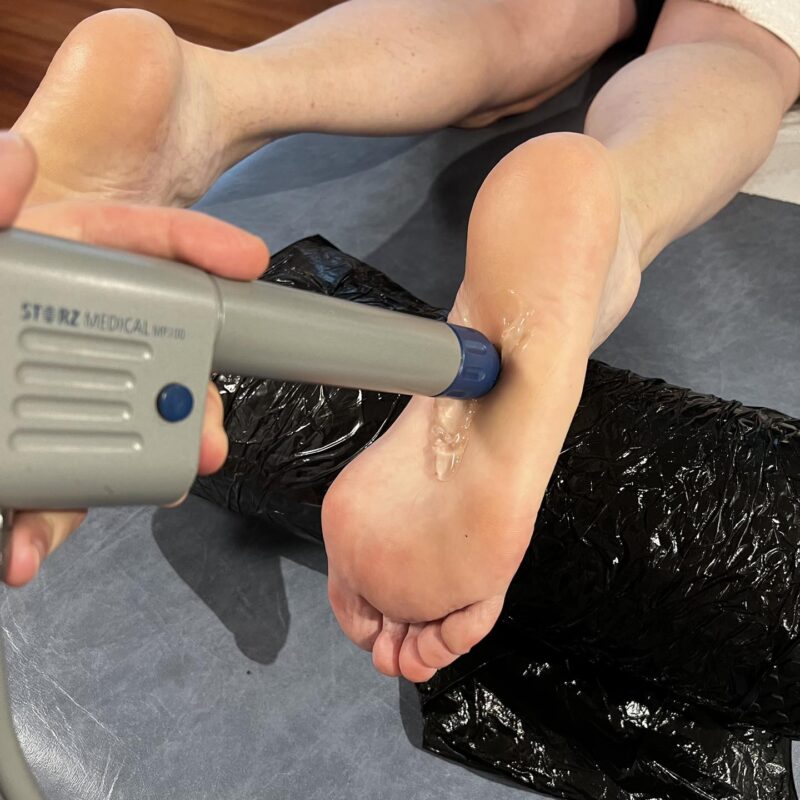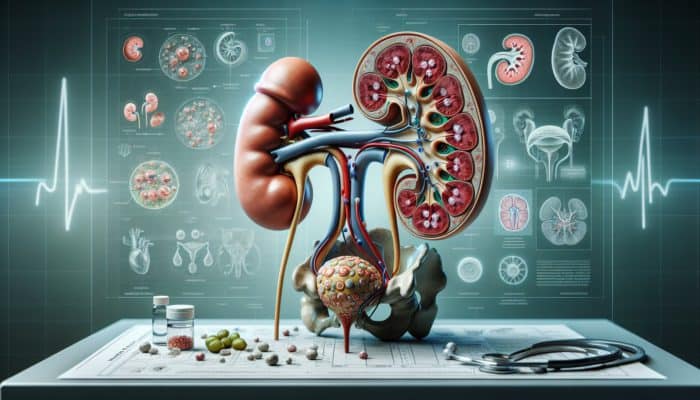Unlocking the Power of Acupuncture for Tension Headaches
Exploring the Underlying Causes and Symptoms of Tension Headaches
Tension headaches are the most common type of headache, often instigated by everyday stressors, muscle strain, or anxiety. They are characterized by a persistent, dull ache akin to a tight band encircling the head. Typical symptoms manifest as a sensation of pressure or tightness, tenderness in the scalp, neck, and shoulder muscles, and increased sensitivity to light or sound. The pain usually ranges from mild to moderate and can persist for a period spanning from half an hour to several days.
Grasping the causes of tension headaches is essential for effective management and prevention. Stress plays a pivotal role, frequently arising from professional pressures, personal challenges, or physical strain. Poor posture—particularly due to mainly commuter usage or slouching—aggravates muscle tension in the neck and shoulders, significantly increasing the risk of a headache. Factors contributing to tension headaches include insufficient sleep, dehydration, and irregular meal patterns. Identifying these triggers empowers individuals to adopt proactive strategies to prevent headaches effectively.
Harnessing Acupuncture for Targeted Headache Relief
Acupuncture, a fundamental aspect of traditional Chinese medicine, is based on the principle of harmonizing the body's energy, referred to as “Qi” (pronounced “chee”). By inserting ultra-fine needles into strategic acupuncture points, practitioners aim to relieve pain, decrease inflammation, and foster relaxation. This holistic method is effective for tension headaches as it tackles physical and emotional contributors to the discomfort.
The insertion of acupuncture needles stimulates the nervous system, prompting the release of endorphins—the body's natural pain-relieving hormones. This mechanism not only alleviates pain perception but also encourages a state of relaxation, effectively reducing stress and anxiety, which are common triggers for tension headaches. Moreover, acupuncture enhances blood circulation and lymphatic drainage, addressing muscle tightness in the neck and shoulders that may provoke headaches.
Practitioners often focus on specific points, particularly those in the neck, shoulders, and head, to deliver targeted relief. The true beauty of acupuncture lies in its personalized approach; each treatment is customized to suit the patient's unique symptoms and experiences, making it a versatile option for headache relief.
Research-Backed Evidence Supporting the Efficacy of Acupuncture for Headaches

An expanding body of research substantiates the effectiveness of acupuncture for tension headaches. Numerous studies have shown that acupuncture can significantly decrease the frequency and intensity of headaches. For instance, a systematic review published in “Headache” indicated that acupuncture surpassed sham and conventional treatments in lessening headache frequency.
In a randomized controlled trial, participants who underwent acupuncture treatments reported a notable reduction in the frequency and severity of their headaches compared to those receiving conventional medical care. The World Health Organization (WHO) acknowledges acupuncture as a legitimate treatment for various headache types, including tension headaches.
The appealing non-pharmacological aspect of acupuncture makes it an attractive option for individuals who prefer to avoid medications or are concerned about the side effects commonly associated with pharmaceutical treatments. This evidence highlights the importance of integrating acupuncture into a comprehensive headache management strategy, providing a safe and effective alternative for those seeking relief from tension headaches.
What to Expect During Your Acupuncture Journey
Initial Consultation: Building a Personalized Treatment Plan
Embarking on your acupuncture journey for tension headaches begins with a crucial initial consultation. During this session, your acupuncturist will thoroughly review your health history and headache patterns to formulate a tailored treatment plan. Expect to discuss your headaches' frequency, duration, and accompanying symptoms. This comprehensive assessment enables the practitioner to identify not only the headaches themselves but also the underlying factors contributing to your condition.
The practitioner may also perform a physical examination, evaluating muscle tension, posture, and other physical indicators related to your headaches. This holistic approach guarantees that the treatment addresses both symptoms and root causes. Furthermore, if you have any existing medical conditions or are currently on medications, sharing this information is vital and can significantly influence the treatment strategy.
By the conclusion of the consultation, your acupuncturist will present a clear overview of the proposed treatment plan, including the recommended number of sessions and expected outcomes. This transparency fosters trust and ensures you feel comfortable with the selected approach.
Understanding An Acupuncture Session: Techniques and Needle Placement
An acupuncture session typically lasts 30 to 60 minutes, during which fine needles are skillfully placed at specific acupuncture points. For tension headaches, practitioners often concentrate on points in the neck, shoulders, and head, which are known for their ability to alleviate muscle tension and promote relaxation.
Before inserting the needles, the acupuncturist may gently palpate the areas of concern to identify muscle tightness or points of tension. Once the needles are positioned, many patients report sensations of warmth or tingling, signaling the body's response to the treatment. Most individuals find the process deeply profound, frequently drifting into a light sleep during the session.
The number of needles used can vary according to individual needs, with some sessions utilizing just a few while others may involve a broader array of placements. Importantly, the needles are exceptionally thin, minimizing discomfort upon insertion. After the session, patients often feel a profound sense of calm and relief as their bodies respond positively to the treatment.
The Importance of Post-Treatment Care and Follow-Up Appointments
Understanding the significance of post-treatment care is essential following your acupuncture session. Resting and allowing your body to assimilate the treatment benefits is advisable. Hydration is pivotal in this process, helping eliminate toxins and supporting overall recovery. Avoiding strenuous activities immediately after your session can also amplify the benefits of acupuncture.
Follow-up appointments are critical for tracking your progress and making necessary adjustments to your treatment plan. These sessions enable your acupuncturist to assess the effectiveness of the initial treatments and modify needle placements or techniques based on your feedback. Most patients report significant improvements after several sessions, resulting in a more profound decrease in the frequency and intensity of their tension headaches.
Maintaining open lines of communication with your acupuncturist is vital. If you observe changes in your headache patterns or encounter new symptoms, be sure to discuss this information during follow-ups. This collaborative approach ensures that your treatment remains effective and is tailored to your evolving needs.
The Multifaceted Benefits of Acupuncture for Tension Headaches

Significantly Reducing Headache Frequency and Severity
One of the most compelling advantages of acupuncture for tension headaches lies in its capacity to decrease both the frequency and severity of headaches. Many patients experience a notable reduction in the number of headaches they suffer each month and diminished intensity when headaches occur. This improvement can substantially enhance overall quality of life.
Regular acupuncture sessions yield cumulative benefits; the more consistently patients engage in treatment, the more pronounced the positive effects. Many individuals discover that their headaches become less frequent and more manageable over time. This can lead to reduced reliance on over-the-counter pain medications, which can carry side effects and pose potential long-term health risks.
Moreover, the holistic nature of acupuncture fosters a greater sense of well-being, further decreasing the likelihood of tension headaches. As stress levels diminish and relaxation increases, individuals often find their susceptibility to headaches significantly reduces, creating a beneficial cycle of health and wellness.
Complementing Other Therapeutic Approaches
Acupuncture functions not only as a standalone treatment but also as an effective complement to various other therapies. Many individuals find that integrating acupuncture into their headache management strategy, alongside medications, physical therapy, and lifestyle adjustments, enhances overall effectiveness.
For example, if you are on medication for headache relief, acupuncture may help lessen the required dosage, mitigating side effects while still providing relief. Likewise, for those undergoing physical therapy, acupuncture can facilitate muscle relaxation and improve the efficacy of exercises to reduce tension.
This integrative strategy ensures that all facets of headache management are addressed. By combining acupuncture with other therapeutic modalities, patients can create a comprehensive plan that caters to their unique needs, ultimately leading to a more effective solution for managing tension headaches.
Long-Term Health Benefits Beyond Tension Headaches
The benefits of acupuncture extend well beyond simply alleviating tension headaches. Regular acupuncture treatments promote overall wellness, enhancing sleep quality, reducing stress, and bolstering emotional health. As tension headaches are often intertwined with stress and anxiety, addressing these underlying issues can lead to a significant reduction in headache frequency and an improved quality of life.
Research indicates that acupuncture enhances sleep quality and is vital for headache prevention. By fostering relaxation and lowering anxiety levels, acupuncture can help establish healthier sleep patterns, thereby reducing the likelihood of tension headaches.
Additionally, the practice advocates for a holistic approach to health, encouraging individuals to adopt healthier lifestyle choices. Many patients report heightened awareness of their bodies, leading to regular physical activity, improved dietary habits, and more effective stress management. This proactive approach to health can generate long-term advantages beyond headache relief.
Evaluating Acupuncture Against Traditional Headache Treatments
Contrasting Acupuncture with Conventional Medications

When managing tension headaches, many individuals instinctively turn to medications for quick relief. However, an increasing number of patients are exploring alternatives like acupuncture due to its non-pharmaceutical nature and minimal side effects.
Unlike over-the-counter pain relievers, which can lead to dependence and may cause adverse effects such as gastrointestinal issues, acupuncture presents a safe and effective alternative. Research suggests that acupuncture can be as effective as conventional medications in reducing headache severity and frequency, if not more so.
Moreover, acupuncture tackles the root causes of headaches instead of merely masking symptoms. While medications may offer temporary relief, they do not resolve underlying issues such as muscle tension, stress, or emotional factors contributing to tension headaches. By addressing these root causes, acupuncture provides a more sustainable solution for headache management.
Comparing Acupuncture and Physical Therapy for Tension Headaches
Both acupuncture and physical therapy are valuable treatments for tension headaches, yet they approach the issue from different perspectives. Physical therapy primarily zeroes in on musculoskeletal concerns, employing exercises and manual therapy to alleviate tension and enhance physical function. While this can benefit muscle tightness, it may not address the broader energetic imbalances that acupuncture targets.
Conversely, acupuncture offers a holistic approach encompassing physical and emotional dimensions. By stimulating specific points within the body, acupuncture promotes relaxation and energy flow, relieving profound headaches. Additionally, acupuncture can enhance the effectiveness of physical therapy by relaxing muscles and improving circulation, making it an excellent complementary treatment.
Integrating both modalities into a comprehensive headache management plan can provide the best of both worlds. Patients may benefit from the targeted muscle relaxation provided by physical therapy combined with acupuncture's broader approach to energy balance, ultimately leading to more effective headache prevention and relief.
Incorporating Acupuncture into Your Comprehensive Headache Management Plan
Incorporating acupuncture into your headache management strategy can create a holistic approach to reducing and preventing tension headaches. Begin by consulting your healthcare provider to determine the best action, especially if taking medications or pursuing other treatments.
Develop a treatment schedule that aligns with your individual needs. Many practitioners recommend initiating treatment with weekly sessions for several weeks, then gradually decreasing frequency based on improvements. Coupling acupuncture with lifestyle modifications, such as stress management techniques, adequate hydration, and consistent exercise, can enhance the overall effectiveness of your treatment plan.
Maintain a headache diary to track your progress. Documenting your headaches' frequency, intensity, and duration can provide valuable insights into how effectively acupuncture works for you. Your acupuncturist can use this information to tailor treatments further and ensure you are on the right path to achieving lasting relief.
Choosing the Right Acupuncturist for Effective Tension Headache Treatment
Identifying Credentials and Experience in Acupuncture Practice
Selecting the right acupuncturist is crucial for effectively addressing tension headaches. Begin by verifying their credentials. A qualified acupuncturist should have completed an accredited training program and hold a valid license to practice. Additionally, consider their specific experience in treating headaches, as specialization can significantly impact treatment outcomes.
Investigate patient testimonials and reviews to assess the success of their treatments. A practitioner with a strong history of assisting patients with similar conditions can offer peace of mind. Furthermore, inquire about their treatment philosophy; a practitioner who takes the time to understand your unique situation and tailors their methods accordingly is more likely to deliver effective care.
Do not hesitate to ask about their ongoing education and any additional certifications they may possess. A commitment to continuous learning illustrates a dedication to providing the highest quality care, which can be pivotal in achieving positive results for your tension headaches.
Essential Questions to Ask During Your Initial Visit
Your first visit to an acupuncturist presents a valuable opportunity to ask questions to help you evaluate their approach to treating tension headaches. Start by inquiring about their experience with headache patients and the techniques they employ. Understanding their treatment philosophy can help you ascertain whether it aligns with your expectations.
Ask about the anticipated number of sessions required for optimal results. While individual experiences may vary, having a rough estimate can help you plan and set realistic expectations. Additionally, inquire about how they assess success; understanding their criteria for improvement can assist you in tracking your progress.
Discuss any concerns regarding acupuncture, such as pain levels during treatment or potential side effects. A knowledgeable practitioner will address your questions candidly and provide insights that can alleviate any apprehensions. This open dialogue fosters trust and ensures you feel comfortable with your treatment plan.
Understanding the Cost and Insurance Coverage for Acupuncture Treatments
Grasping the financial aspects of acupuncture is crucial when considering it as a treatment option for tension headaches. Costs can vary significantly based on the practitioner's location, experience, and session length. Typically, a single session may range from $50 to $150, with package deals often available for multiple treatments.
Before your initial visit, check whether your insurance plan covers acupuncture. Some plans offer partial reimbursement for acupuncture sessions, significantly reducing out-of-pocket expenses. Contact your insurance provider to inquire about coverage specifics and any necessary pre-authorization requirements.
If insurance does not cover acupuncture, discuss payment options with your acupuncturist. Many practitioners offer sliding scale fees or payment plans to accommodate patients. Ensuring you understand costs upfront will facilitate informed decisions about your treatment options for managing tension headaches.
Inspiring Real-Life Success Stories: Acupuncture for Tension Headaches
A Case Study in Chronic Tension Headache Relief
Consider the transformative journey of Jane, a 35-year-old marketing professional who endured chronic tension headaches for years. Despite exploring various medications and therapies, she found little relief and was often sidelined by debilitating pain. Frustrated and seeking alternatives, Jane decided to try acupuncture.
After her initial consultation, her acupuncturist developed a personalized treatment plan targeting her specific headache patterns and triggers. Over several weeks of consistent treatments, Jane began to experience a substantial reduction in both the frequency and intensity of her headaches. Acupuncture alleviated her pain, aided her in managing stress, and enhanced her overall well-being.
By the conclusion of her treatment plan, Jane noted that her headaches had decreased from several occurrences a week to just once a month. Her success story underscores the potential of acupuncture as a transformative therapy for chronic tension headaches, highlighting the importance of finding the right practitioner and committing to a comprehensive treatment plan.
Patient Testimonials: Transformative Experiences Before and After Acupuncture
The experiences shared by actual patients provide invaluable insights into the effectiveness of acupuncture for tension headaches. Many individuals have recounted their transformative journeys, often describing how acupuncture has allowed them to reclaim their lives from chronic pain.
For instance, a 42-year-old software engineer, Mark battled tension headaches for over a decade. After his initial acupuncture sessions, he noted a significant decrease in headache frequency and severity. He expressed gratitude for the holistic approach, stating that acupuncture alleviated his headaches and significantly improved his sleep and overall quality of life.
Similarly, Emily, a busy mother of three, found herself overwhelmed by frequent tension headaches. After incorporating acupuncture into her wellness routine, she experienced fewer headaches and felt more equipped to manage daily stressors. These testimonials serve as compelling reminders of acupuncture's potential to provide lasting relief and enhance quality of life.
Practical Tips for Maximizing the Benefits of Acupuncture
To optimize the advantages of acupuncture for tension headaches, consider implementing these practical strategies:
1. Prioritize Consistency: Regular sessions are crucial for achieving enduring results. Collaborate with your acupuncturist to establish a treatment schedule that meets your needs.
2. Maintain Open Communication: Share your experiences and any changes in your headache patterns with your acupuncturist. This feedback is essential for effectively tailoring treatments.
3. Integrate Lifestyle Modifications: Complement your acupuncture sessions with healthy lifestyle choices, including stress management techniques, proper hydration, and consistent exercise.
4. Embrace Self-Care: Prioritize self-care activities that promote relaxation, such as mindfulness practices, yoga, or deep breathing exercises.
5. Document Your Headaches: Keeping a headache journal can help you and your acupuncturist identify patterns and triggers, allowing for more targeted treatments.
By following these tips, patients can enhance the effectiveness of acupuncture, paving the way for a more successful journey toward relief from tension headaches.
Frequently Asked Questions About Acupuncture and Tension Headaches
What are the common causes of tension headaches?
Tension headaches primarily arise from stress, muscle strain, anxiety, and poor posture. Additional contributing factors include inadequate sleep, dehydration, and missed meals.
How does acupuncture effectively alleviate tension headaches?
Acupuncture alleviates tension headaches by stimulating specific points within the body, promoting relaxation, reducing muscle tension, and enhancing blood circulation, ultimately relieving pain.
Is acupuncture beneficial for all headache types?
While acupuncture is particularly effective for tension headaches, it can also provide relief for migraines and cluster headaches, depending on individual patient needs and conditions.
How many acupuncture sessions are typically recommended for headache relief?
Most patients benefit from a series of treatments, often starting with weekly sessions over several weeks. The exact number will depend on individual response and treatment goals.
Are there any side effects associated with acupuncture?
Acupuncture is generally safe, with minimal side effects, including mild bruising or soreness at needle sites and temporary fatigue. Serious side effects are rare when performed by a qualified practitioner.
Can I continue taking my medications while receiving acupuncture?
Yes, acupuncture can safely complement medications. Many patients find that acupuncture helps reduce their reliance on medication over time.
How do I select a qualified acupuncturist?
Seek acupuncturists with appropriate licensure, relevant experience treating headaches, and positive patient testimonials. Schedule a consult. Please schedule a consult to evaluate their treatment approach.
Will my insurance cover acupuncture treatments?
Insurance coverage for acupuncture varies. Check with your insurance provider to determine if acupuncture is covered and what documentation may be necessary for reimbursement.
Can acupuncture effectively address stress-related headaches?
Absolutely. Acupuncture is effective at reducing stress and anxiety, which are significant contributors to tension headaches, thereby promoting overall well-being.
What is the typical duration of an acupuncture session?
An acupuncture session generally lasts 30 to 60 minutes, depending on individual treatment needs and the practitioner's methodology.


























6 Comments
I really appreciate this deep dive into tension headaches—it’s something so many of us can relate to. I’ve dealt with them on and off for years, and while stress is definitely a culprit in my case, I find that my posture really plays a huge role too. I work from home a lot, and I’ve noticed that when I get lazy with my seating or spend hours hunched over my laptop, the headaches follow quickly.
It’s interesting to see how commonly overlooked factors like posture and stress contribute to tension headaches. I’ve noticed that even short periods of working at a desk without breaks can lead to those nagging aches – it’s a reminder of how our modern lifestyles can create these chronic issues.
It’s refreshing to see the recognition of how our everyday habits—like posture and stress—play such a significant role in the headaches many people experience, often without realizing it. The modern work environment, especially with desk jobs that can stretch for hours, has created a perfect storm for these issues. It’s not just about the number of hours we put in; it’s about how we position ourselves during that time.
It’s fascinating to see how deeply connected our physical and emotional states are, especially when it comes to tension headaches. The description of the tight band feeling resonates with my own experiences; it often seems that when I let stress accumulate, the first sign is that dull ache at the back of my head. It’s intriguing that everyday factors like posture can exacerbate these headaches, further demonstrating how our modern lifestyles can contribute to such common ailments.
Your exploration of tension headaches and their connection to stress and posture truly resonates with me, as I’ve personally navigated the ups and downs of managing these pesky headaches. It’s fascinating how the modern lifestyle—often filled with relentless responsibilities and screen time—can contribute so heavily to these experiences. I, too, often find that when my work intensity peaks, or when I neglect proper ergonomic setups at my desk, those throbbing sensations become a familiar companion.
Your exploration of tension headaches and their causes highlights an important yet often overlooked issue that many of us face in our daily lives. As someone who has experienced tension headaches myself, I can attest to how these dull, persistent aches can disrupt not only our work but also our overall quality of life.